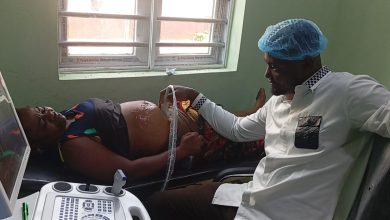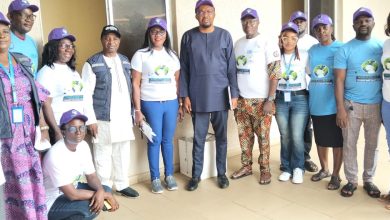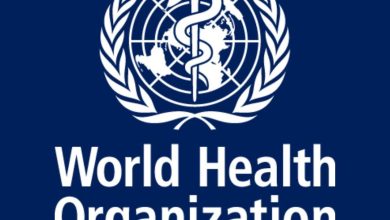NAFDAC Denies Unconditional Reopening of Drug Markets
NAFDAC has firmly denied reports claiming it has reopened Nigeria’s open drug markets without conditions, stressing that all reopenings are strictly tied to compliance and payment of investigative fees.
Director-General Mojisola Adeyeye emphasized that no shop will resume operations permanently unless all regulatory guidelines are met, warning against the dangers of counterfeit and unregulated medicines.
SEE ALSO: NAFDAC Defends ₦700,000 Penalty Amid Crackdown on Fake Drugs
The National Agency for Food and Drug Administration and Control (NAFDAC) has dismissed claims circulating online that it has unconditionally reopened Nigeria’s open drug markets. The agency described such reports as inaccurate and misleading.
Speaking at a press briefing in Lagos on Friday, NAFDAC Director-General, Professor Mojisola Adeyeye, clarified that any market reopening is subject to strict regulatory conditions. She stressed that affected traders must meet compliance requirements and settle investigative fees before they are allowed to resume operations.
“There is no such thing as an unconditional reopening of any drug market or shop,” Adeyeye declared. “We are determined to safeguard the health of Nigerians, especially women who are most affected by unsafe medicines.”
She responded to viral news headlines that suggested the agency had softened its enforcement stance, asserting that such narratives do not reflect the reality of NAFDAC’s position.
Giving updates on the agency’s recent enforcement activities, Professor Adeyeye revealed that massive seizures were made in major drug markets including Idumota in Lagos, Ariaria in Aba, and the Bridgehead market in Onitsha. Between February 9 and March 27, 2025, the agency confiscated over ₦1 trillion worth of illegal, expired, falsified, and substandard drugs, many of which were controlled substances.
“At the Bridgehead market alone, we removed 137 truckloads of illicit pharmaceuticals, including 10 full trucks of unregistered Tramadol,” she stated.
She explained that traders seeking to reopen their shops must report to the agency’s Onitsha office, where they are required to pay investigative charges and sign a formal undertaking. The reopening, she said, would be temporary and heavily monitored.
“You pay the charges and sign the agreement. Only then will we temporarily allow you to reopen, and that comes with conditions. This is not a permanent reinstatement,” she said.
The agency also found that the majority of the affected shops lacked proper site licenses issued by the Pharmacy Council of Nigeria (PCN), which is mandatory for legal operation. While acknowledging that a minority may have been compliant, Professor Adeyeye said a total closure was necessary to enforce accountability across the board.
“When the majority are in violation, we cannot make exceptions for a few. We had to take collective action to restore order,” she noted.
She further alleged that those resisting the agency’s directives were involved in smuggling and distributing narcotics. “These are the people bringing harmful substances into our communities, targeting the youth. We must stop them before more lives are lost,” she warned.
Professor Adeyeye also highlighted that the ongoing clampdown aligns with a directive from the Presidency, which aims to move drug trade operations into Coordinated Wholesale Centers (CWCs) nationwide. She pointed to the successful implementation of this policy in Kano, where traders were eventually relocated following a prolonged legal battle.
“For a decade, traders in Kano resisted regulation by taking the Pharmacy Council to court. But after a critical legal ruling, we moved them to a regulated wholesale center with the support of 150 security officers,” she recounted.
She emphasized that Nigeria’s commitment to international trade and healthcare standards is key to boosting economic growth. According to her, embracing global best practices is essential for expanding trade opportunities and creating employment.
Touching on the dangers of buying medicines from unregulated sources, she warned that counterfeit drugs could be fatal for individuals with chronic conditions.
“A hypertensive or diabetic patient relying on fake medication from these markets is at risk of death. That is the danger we are working to eliminate,” she said.
Professor Adeyeye concluded by reaffirming NAFDAC’s commitment to public safety. She cautioned the public against believing unfounded online claims, stating clearly that the agency is standing firm and will not back down from its regulatory mandate.



